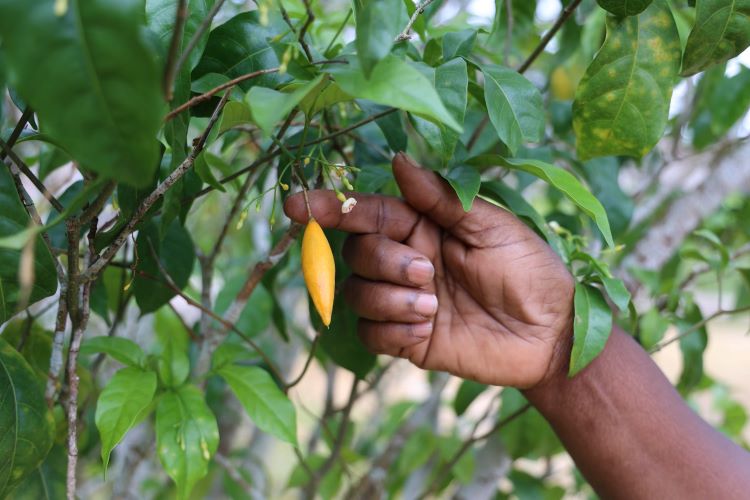
Understanding the Iboga Ceremony
Ibogaine is steadily emerging as an important psychedelic plant medicine in North America. Yet the Bwiti peoples of Gabon and other West African nations have consumed the iboga root (the source of ibogaine) in a ritual context for centuries.
Its use spans a diverse range of applications. It may be used as an initiation rite for young men. It is said to be a suitable treatment for diabetes. And sometimes, its even used as a stimulant.
Iboga is considered sacred in West Africa. Traditional users say it is the path to the spirit realm, a way to connect with deceased ancestors, and an agent for healing many conditions of the mind and body.
History of Iboga Consumption
It’s the mid-1700s. The Mitsogho tribes of West Africa are under attack by European colonists who have discovered their region’s rich natural resources. The Mitsogho flee to the Congo jungle in an attempt to preserve their way of life. In the depths of the jungle, the story goes, the Mitsogho came across pygmy tribes. The pygmies were consuming the Iboga root for its psychedelic properties, and they let their Mitsogho guests in on its secrets. This ended up being a transformative encounter.
The Mitsogho soon discovered Iboga’s capacity to induce hallucinogenic visions. It allowed them to communicate with their ancestors, uncover forgotten memories, and gain insights into the nature of reality itself. After these experiences, veneration and ingestion of Iboga quickly became a central part of Mitsogho culture. It is through the Mitsogho people that the West has gained limited access to the Iboga root.
The Modern-Day Iboga Ceremony
Participating in an Iboga ceremony as a foreigner involves a high degree of prior planning and preparation.
Preparation
Unlike with substances such as psilocybin or LSD, one cannot simply take Iboga without preparing the mind and body first. The preparation period lasts at least a month. It involves meditation, fasting, going ‘cold turkey’, spending time outside in nature, and setting intentions. When it comes to Iboga, the work of personal growth is not left entirely to the root itself. Rather, the initiate must do some of this work him or herself during the time period leading up to the ceremony.
Who Guides an Iboga Ceremony?
The ceremony itself will be led by a ‘nganza’, or the Bwiti version of a shaman. Although most Bwiti nganzas are people native to that land, a few foreigners have also been trained, ordained, and given permission to lead Iboga ceremonies.
What to Expect
During the ceremony, the nganza(s) may sing, chant, play music, and engage in other rituals that are a part of their culture. The actual content of what will happen within you, the participant, is very difficult both to describe and predict. Although Iboga root is hallucinogenic, the feeling of an Iboga trip is not comparable to that of any other psychedelic substance you might have tried before.
Some consumers of Iboga describe it simply as a disgusting-tasting plant that made them vomit and feel dizzy for fifteen hours. Others enthuse that the trip completely changed their minds and paths for the better and showed them the meaning of life. Reports of intense introspection and emotional release are common.
The trip lasts around 18-24 hours in total. The effect will set in between 1-3 hours after consumption, and the first and most acute phase of the trip takes about 4-8 hours. The remainder of the journey is less hallucinogenic, but the user will feel the effect of the Iboga as they sit in deep reflection and introspection.
Many people who consume Iboga root also find that their energy and libido are heightened for as long as a few weeks after the trip.
Risks of Participating in an Iboga Ceremony
Iboga has gotten somewhat of a bad rap as there have been fatalities associated with it. In most cases, these have occurred among heroin users seeking to banish their addictions without following the necessary protocols. Anyone who wishes to ingest Iboga to treat addiction should do so within a well-reputed clinical setting.
Summary
Is Iboga life-changing? Potentially, yes. Is it any easy experience to go through or simple to gain access to? No. An Iboga ceremony is an intense and challenging experience, so be prepared. It is not broadly recommended for everyone. Anyone considering an iboga ceremony should do thorough research and consult with a qualified spiritual guide or healthcare provider beforehand. Check out our Ultimate Ibogaine Treatment Center Guide for more information.

Comments